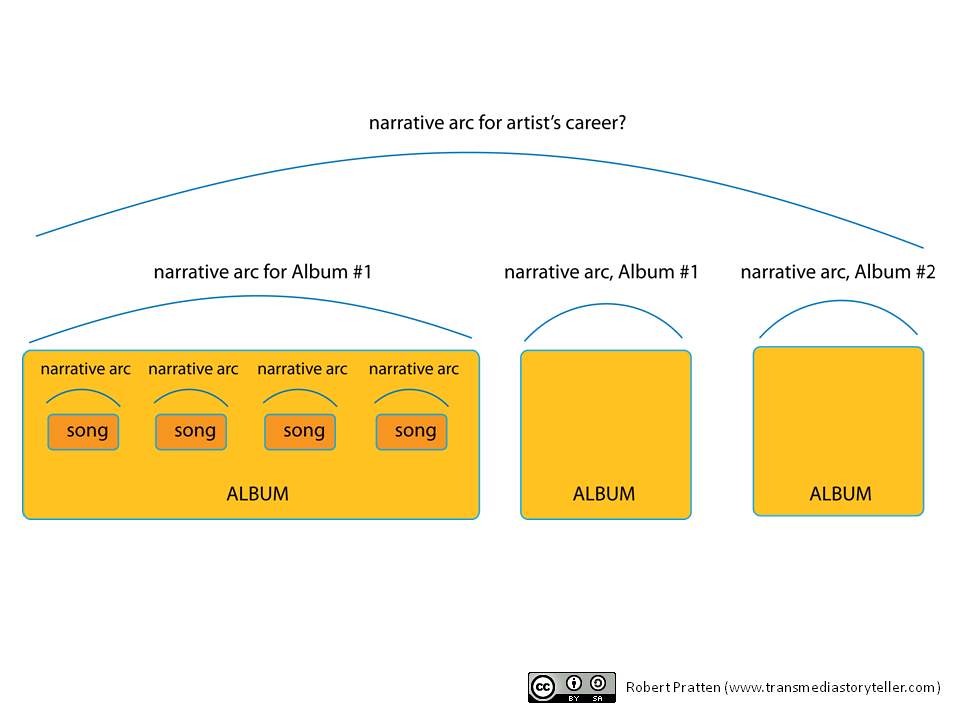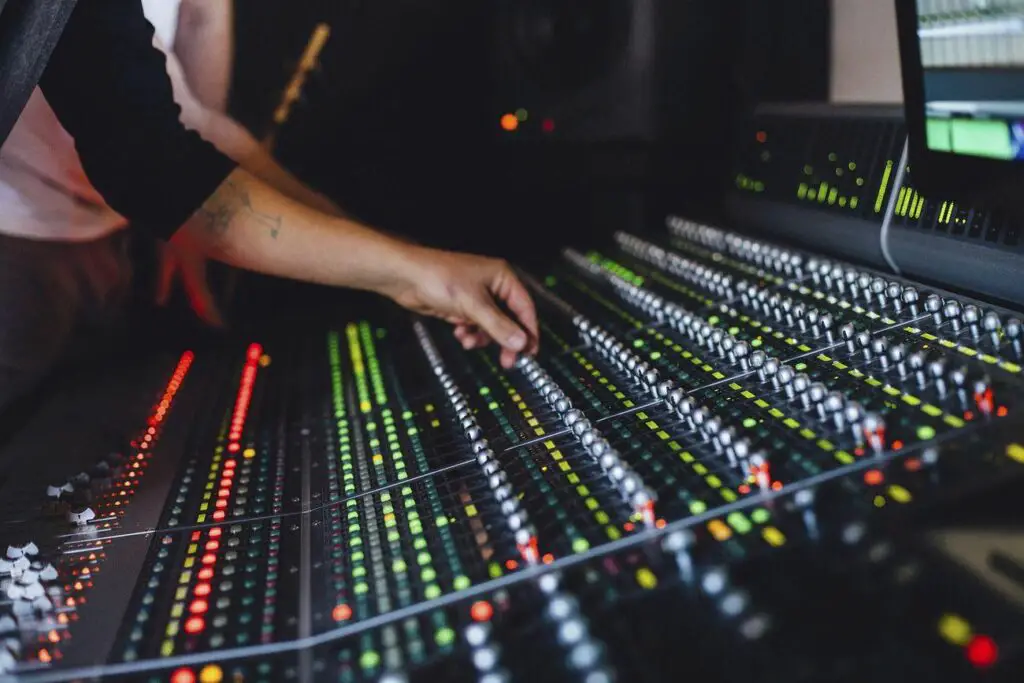If you’re passionate about music and interested in pursuing a career in the industry, you may have considered how to get a job in music production. Music production is a critical part of the music industry and involves a range of job roles such as audio engineering, music producing, sound designing, and recording studio technicians. In this step-by-step guide, we will take you through the necessary steps to break into the music production industry, including education and training requirements, necessary skills, and software proficiency, and strategies for finding job opportunities. Whether you’re just starting or looking to advance your career, our guide will provide you with the information you need to succeed in the music production industry.
Table of Contents

Introduction
Music production is the process of creating and recording music, from writing and composing to mixing and mastering. It is a complex process that includes different stages, and each stage requires specific skills and knowledge. Music producers play a critical role in the music industry, working with artists and musicians to create high-quality recordings that are released to the public. They are responsible for managing the entire recording process, from selecting the right studio and equipment to coaching the performers and making creative decisions. Without music producers, many of the songs and albums we know and love simply wouldn’t exist.
In this article, we will provide a step-by-step guide on how to get a job in music production. Whether you want to be an audio engineer, music producer, sound designer, or recording studio technician, this guide will give you the information and resources you need to pursue a career in music production. We will cover the necessary skills, qualifications, and training required for each job role, as well as tips for finding job opportunities and securing the job of your dreams. So, if you’re passionate about music and want to turn your passion into a career, keep reading!
Understanding the Music Production Industry
To break into the music production industry, you must first understand the various job roles within it. The industry is composed of different job roles, including audio engineers, music producers, sound designers, and recording studio technicians.

Job Roles in Music Production
Here are some of the most common job roles in the music production industry:
1. Audio Engineer
Audio engineers are responsible for the technical aspects of music production, such as recording and mixing. They work closely with musicians and producers to ensure that the sound quality of a recording is exceptional. Audio engineers must have a strong understanding of the technical aspects of sound, including acoustics, microphones, and audio equipment.
2. Music Producer
Music producers oversee the entire music production process, from composition to recording to mixing and mastering. They work with musicians and artists to create a cohesive sound for an album or song. Music producers must have a strong understanding of music theory, as well as technical skills in recording and mixing.
3. Sound Designer
Sound designers are responsible for creating sound effects and audio elements that are added to songs and recordings. They work with music producers and audio engineers to create unique and interesting sounds that enhance the overall listening experience. Sound designers must have a strong understanding of sound design software and techniques.
4. Recording Studio Technician
Recording studio technicians are responsible for maintaining and operating the equipment used in music production. They set up microphones, operate mixing consoles, and troubleshoot technical issues. Recording studio technicians must have a strong understanding of audio equipment and be able to work quickly in a fast-paced environment.
Skills and Qualifications for Music Production Careers
Each job role within music production requires unique skills and qualifications. Here are some of the most important skills and qualifications for each role:
1. Audio Engineer
- Strong technical skills in sound recording and mixing
- Knowledge of acoustics and audio equipment
- Experience with digital audio workstations (DAWs), such as Pro Tools or Logic Pro
- Bachelor’s degree in audio engineering or a related field
2. Music Producer
- Strong understanding of music theory and composition
- Experience with music production software, such as Ableton Live or FL Studio
- Knowledge of recording and mixing techniques
- Bachelor’s degree in music production or a related field
3. Sound Designer
- Proficiency in sound design software, such as Adobe Audition or Sound Forge
- Understanding of sound effects and audio design principles
- Knowledge of mixing and mastering techniques
- Bachelor’s degree in sound design or a related field
4. Recording Studio Technician
- Knowledge of audio equipment and setup
- Familiarity with mixing consoles and digital audio workstations
- Ability to troubleshoot technical issues quickly
- Associate’s degree in audio engineering or a related field
Job Outlook and Salary Ranges
The music production industry is competitive, but job opportunities are available for those with the right skills and qualifications. According to the Bureau of Labor Statistics, the median annual wage for audio and video equipment technicians (including recording studio technicians) was $44,420 in May 2020. The job outlook for audio engineers, music producers, and sound designers is positive, with job growth projected to be about average for all occupations.

Becoming an Audio Engineer
If you’re interested in a career as an audio engineer, there are several steps you can take to get started.
Education and Training Requirements
To become an audio engineer, you typically need a bachelor’s degree in audio engineering or a related field. However, some employers may also accept an associate’s degree or a certificate from a technical school. Formal education provides the foundation for a career in audio engineering, but it’s also important to gain hands-on experience through internships or apprenticeships.
Technical Skills and Software Proficiency
Audio engineers must have strong technical skills in sound recording and mixing. They must also be proficient in digital audio workstations (DAWs) such as Pro Tools, Logic Pro, and Ableton Live. It’s important to stay up-to-date on the latest software and technology in the industry. In addition to software proficiency, audio engineers need to have a deep understanding of acoustics, signal flow, microphone placement, and audio processing.
Hands-On Experience
Internships and apprenticeships are a great way to gain hands-on experience in the industry. Many recording studios and music production companies offer internships to students and recent graduates. This is a great way to learn from experienced professionals and gain valuable skills and knowledge. Additionally, building a portfolio of work can help showcase your skills and experience to potential employers.
Building a Professional Network
Networking is an essential part of a career in audio engineering. Attending industry events, joining professional organizations, and connecting with other professionals can help you learn about job opportunities and gain valuable industry insights. Building a strong network can also lead to mentorship opportunities and collaborations with other professionals.
Job Outlook and Salary Range
According to the Bureau of Labor Statistics, the employment of broadcast and sound engineering technicians is projected to grow 8 percent from 2019 to 2029, faster than the average for all occupations. The median annual wage for broadcast and sound engineering technicians was $45,510 in May 2020. However, salaries can vary depending on factors such as experience, location, and industry.

Becoming a Music Producer
If you’re passionate about music and interested in a career as a music producer, you will need to take several steps to get started.
A. Education and Training Requirements
Most music production jobs require a bachelor’s degree in music production or a related field. Some employers may also accept an associate’s degree or a certificate from a technical school. You should have a strong understanding of music theory, composition, and song arrangement. Additionally, you should have knowledge of music production history and different genres.
B. Technical Skills and Software Proficiency
Music producers must be proficient in music production software such as Ableton Live, Logic Pro, or FL Studio. They also need a strong understanding of recording and mixing techniques, as well as sound design principles. To stay competitive in the industry, you should keep up with the latest software and music technology.
C. Hands-On Experience
Getting hands-on experience in music production is essential to your success as a music producer. Internships and apprenticeships are a great way to gain real-world experience. Many recording studios and music production companies offer internships to students and recent graduates. This is a great way to learn from experienced professionals and gain valuable skills and knowledge. Additionally, you should consider creating your own music and producing for other artists to build your portfolio. This can help you gain recognition and exposure in the music industry.

Becoming a Sound Designer
If you’re interested in a career as a sound designer, there are several steps you can take to get started.
A. Education and Training Requirements
Most sound design jobs require a bachelor’s degree in sound design or a related field. However, some employers may also accept an associate’s degree or a certificate from a technical school. It’s essential to have a strong understanding of sound design principles and techniques, including music theory, acoustics, and signal flow.
B. Technical Skills and Software Proficiency
Sound designers must be proficient in sound design software such as Adobe Audition, Pro Tools, or Ableton Live. They must also have a strong knowledge of mixing and mastering techniques, as well as experience in sound synthesis, sound effects, and foley recording. It’s important to stay up-to-date on the latest software and technology in the industry and to be comfortable working with both analog and digital equipment.
C. Hands-On Experience
Internships and apprenticeships are a great way to gain hands-on experience in sound design. Many recording studios, post-production houses, and music production companies offer internships to students and recent graduates. This is an excellent way to learn from experienced professionals and gain valuable skills and knowledge. Additionally, freelance work and personal projects can help build a portfolio and demonstrate your abilities to potential employers.

Becoming a Recording Studio Technician
If you’re interested in a career as a recording studio technician, there are several steps you can take to get started.
Education and Training Requirements
To become a recording studio technician, you will need an associate’s degree in audio engineering or a related field. However, some employers may accept a certificate from a technical school. It’s important to have a strong understanding of audio equipment and setup, as well as knowledge of acoustics, signal flow, and sound design principles.
Technical Skills and Software Proficiency
Recording studio technicians must be familiar with mixing consoles, microphones, and digital audio workstations (DAWs). They must also be able to troubleshoot technical issues quickly. It’s important to stay up-to-date on the latest software and technology in the industry, such as Pro Tools, Logic Pro X, and Ableton Live.
Hands-On Experience
Internships and apprenticeships are a great way to gain hands-on experience as a recording studio technician. Many recording studios and music production companies offer internships to students and recent graduates. This is a great way to learn from experienced professionals and gain valuable skills and knowledge. In addition to internships, you may also consider volunteering at local studios or working on your own personal projects to build your portfolio. This will help you showcase your skills and stand out to potential employers.

Finding Job Opportunities
After completing the necessary education and gaining relevant skills and experience, it’s time to start looking for job opportunities in the music production industry. Below are some tips on finding employment opportunities:
1. Create an impressive professional portfolio
A portfolio is a collection of your work samples that showcases your skills, experience, and creativity. It’s a vital marketing tool that helps you stand out from other job seekers. Create a personalized and visually appealing portfolio website that includes your resume, work samples, and testimonials. Your portfolio should demonstrate your expertise in music production and highlight your best work.
2. Network with industry professionals and attend music industry events
Networking is crucial in the music production industry. Attend music festivals, industry conferences, and other music events to meet and connect with professionals in the field. You can also join online forums and groups related to music production to expand your network. Building relationships with industry professionals can help you learn about job openings, gain referrals, and receive mentorship.
3. Use online resources and job boards to find job openings
There are several online job boards and resources dedicated to music production jobs. You can search for job openings on websites such as Glassdoor, Indeed, and Monster. You can also visit websites like MusicJobs.com that are specifically dedicated to music industry jobs. Make sure to tailor your application to the specific job requirements and showcase your skills and experience in your cover letter and resume.
4. Consider freelance or contract work to gain experience and build your portfolio
Starting your career in freelance or contract work can help you gain valuable experience, build your portfolio, and establish relationships with clients. You can find freelance opportunities on websites such as Upwork, Freelancer, and Fiverr. Make sure to deliver high-quality work and build relationships with clients to get positive reviews and establish credibility.
By following these tips, you can increase your chances of finding job opportunities in music production. Remember to stay persistent, be patient, and showcase your skills and experience to stand out from the competition.

Interviewing and Securing the Job
Securing a job in music production can be highly competitive, so it’s important to prepare for the interview process. Here are some tips to help you stand out from the competition:
Research the Company and the Job Role
Before going to the interview, research the company and the job role to understand their values, goals, and expectations. Study the company’s history, mission statement, and recent projects. This will help you tailor your answers to their specific needs and show how you can contribute to their success.
Practice Answering Common Interview Questions
Prepare your answers to common interview questions ahead of time. This will help you articulate your skills, experience, and career goals with confidence and clarity. Some common interview questions for music production jobs include:
- What inspired you to pursue a career in music production?
- What technical skills and software proficiency do you have?
- How do you handle tight deadlines and high-pressure situations?
- Can you describe a project you worked on from start to finish?
- How do you stay up-to-date with the latest music production trends and technologies?
Showcase Your Portfolio and Discuss Your Experience
Bring a portfolio of your work to the interview and be prepared to discuss your experience and achievements in detail. This could include your technical skills, software proficiency, and any relevant projects you have worked on. Be sure to highlight your strengths and demonstrate how you can bring value to the company.
Dress Professionally and Arrive on Time
First impressions matter, so dress professionally and arrive on time to show that you are serious about the job. Make sure your attire is appropriate for the company culture and the job role you are applying for. Arriving early will give you time to relax and prepare mentally for the interview.
During the interview process, employers will be looking for candidates with strong technical skills, a passion for music, and the ability to work well in a team. Be sure to showcase your skills and experience, and don’t be afraid to ask questions about the job and the company. Remember to follow up with a thank-you note or email after the interview to express your appreciation for the opportunity.
Insider Tips for Breaking into the Music Production Industry
Breaking into the music production industry can be a challenge, but with the right skills, experience, and mindset, it’s possible to succeed. Here are some insider tips from industry professionals on how to break into the music production industry:
Network, Network, Network
Networking with other industry professionals is critical for breaking into the music production industry. Attend music industry events, join online forums, and connect with people on social media. Building relationships with industry professionals can lead to job opportunities and valuable insights into the industry.
Get Hands-On Experience
Hands-on experience is crucial for breaking into the music production industry. Look for internships or apprenticeships at recording studios or music production companies. Even if the position is unpaid, the experience you gain can be invaluable for your future career.
Keep Learning
The music production industry is constantly evolving. Therefore, it’s important to stay up-to-date on the latest software, technology, and techniques. Attend workshops or seminars, read industry blogs and publications, and take online courses to continue learning and improving your skills.
Be Persistent
Breaking into the music production industry can take time and persistence. Don’t get discouraged if you don’t land your dream job right away. Keep networking, gaining experience, and improving your skills. With persistence and hard work, you can achieve your goals in the music production industry.
Embrace the Power of Social Media
Social media has become a vital tool in the music production industry. Take advantage of social media platforms like Instagram, Twitter, and LinkedIn to promote your work, connect with other industry professionals, and stay up-to-date with the latest industry news and trends.
Harness the Power of Collaboration
Collaboration is key in the music production industry. Partnering with other musicians, producers, and sound designers can lead to new opportunities and help you enhance your skills. Seek out like-minded individuals and explore opportunities to work together on projects or productions.
Be Open to New Opportunities
Breaking into the music production industry often means taking on unconventional opportunities. Be open to working on projects outside of your comfort zone or in new genres. These experiences can help you gain new skills and perspectives, which can lead to new opportunities and growth in your career.
Remember, breaking into the music production industry takes time, dedication, and hard work. But with the right mindset and approach, you can achieve your goals and build a successful career in this exciting field.
Conclusion
In conclusion, pursuing a career in music production can be an excellent choice for those who have a strong passion for music and a desire to work in the music industry. The different job roles within music production such as audio engineer, music producer, sound designer, and recording studio technician require different sets of skills, qualifications, and experience.
Whether you want to become an audio engineer, a music producer, a sound designer, or a recording studio technician, it is important to gain the necessary education, skills, and experience. You can achieve this by attending music schools, taking online courses, attending workshops, and participating in internships and apprenticeships.
Networking with industry professionals is also crucial in the music production industry. Attending industry events, joining professional associations, and building a strong online presence can help you connect with others in the industry and create new opportunities.
Staying up-to-date with the latest software and technology is also essential in the music production industry. By regularly updating your skills and knowledge, you can be competitive and stay ahead of the curve.
At Audio Blog Pros, we have a wealth of resources to help you achieve your music production career goals. Check out our other content for more information on the music industry, audio engineering, recording studio internships, and more. Pursue your passion and take the necessary steps to achieve your career goals in music production.
FAQs
Who can pursue a career in music production?
Anyone with a passion for music and technical skills can pursue a career in music production.
What qualifications do I need to get a job in music production?
A bachelor’s degree in music production or a related field is typically required, along with hands-on experience.
How do I gain hands-on experience in music production?
You can gain hands-on experience through internships, apprenticeships, and personal projects.
What are the necessary skills for a career in music production?
Necessary skills include technical proficiency in music production software and equipment, understanding of music theory, and creativity.
How competitive is the music production industry?
The industry is competitive, but job opportunities are available for those with the right skills and qualifications.
What if I don’t have a formal education in music production?
While a degree in music production or a related field is preferred, experience and a strong portfolio can also lead to job opportunities.


